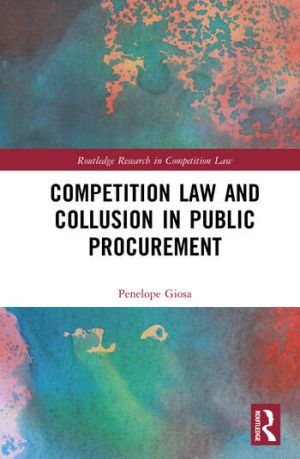
This book examines infringements of competition law in public procurement settings, evaluating the latest European Procurement Directive 2014/24/EU to examine to what extent its provisions facilitate or deter during specific award procedures.
Public contracts account for a significant proportion of EU expenditure. In sectors like energy, transport, social protection and the provision of health or education services, public authorities are the main purchasers. It is important to ensure that public contracts are awarded in an open, fair and transparent manner that enables domestic and non-domestic firms to compete on an equal basis, with the aim of improving the quality and lowering the price of purchases made by public authorities. This book assesses the competition law enforcement mechanisms that competition regulators bring to the area of public procurement in the attempt to deter bid rigging. It analyses key tools for the public and private enforcement of competition law in the domain of public contracts, such as the leniency programme, damages claims for bid rigging and the whistle blower programme. The book uses auction theory as benchmark to assess the risk of collusion in the context of procurement procedures and techniques. Offering a holistic analysis informed by research, it makes recommendations for better design, set up and management of public tenders without distorting competition. Highlighting the need to make use of competition law enforcement mechanisms in the battle against collusion in public procurement, it identifies ways in which the procurement process can be improved, to reduce and prevent bid rigging.
The book will be of interest to researchers in the field of competition law, public procurement and EU law.